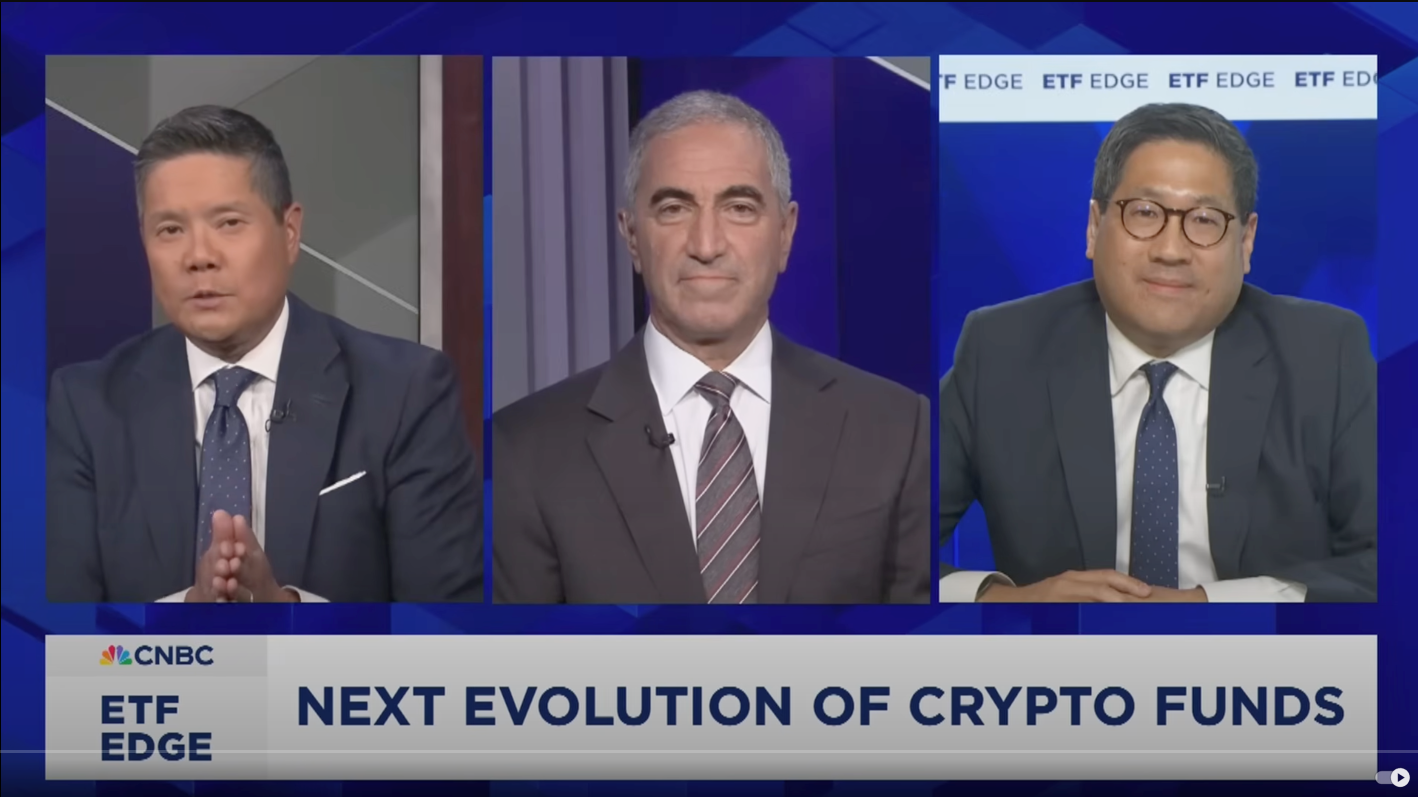
Fundamentals for Newer Directors 2014 (pdf)
The latest edition of ICI’s flagship publication shares a wealth of research and data on trends in the investment company industry.
This quarter marked significant progress in advancing policies that protect investors and strengthen America’s retirement system.
With the passage of the recent tax reform bill, lawmakers delivered a major win for fund shareholders and savers nationwide. The new law safeguards the long-standing tax treatment of 401(k)s and IRAs—ensuring that more than 120 million Americans can continue building retirement security without facing new tax burdens. ICI was on the front lines of the debate with its Help U.S. Retire campaign (see below for more). The tax bill also preserves cross-border capital flows by resolving proposed changes that could have discouraged foreign investment in U.S. markets. These outcomes reflect ICI’s sustained engagement with policymakers and the collective voice of investors who urged Congress to protect long-term savings.
Looking ahead, ICI continues to advocate for smart, bipartisan reforms that will modernize the regulatory framework and enhance opportunities for investors, including the GROWTH Act, which would allow tax deferral on automatically reinvested capital gains distributions. Several key bills have already advanced through congressional committees, including legislation enabling 403(b) retirement plans to access cost-efficient collective investment trusts; measures to strengthen closed-end funds and business development companies; and the Improving Disclosure for Investors Act, which would make electronic delivery the default method for shareholder communications.
In July, ICI’s Chief Government Affairs and Public Policy Officer, Tom Quaadman, testified before the House Financial Services Committee on the 15th anniversary of the Dodd–Frank Act, underscoring the need for updated regulations that reflect today’s financial landscape. ICI remains committed to working with lawmakers and regulators to advance principled reforms that support retirement savers, foster efficient markets, and deliver long-term benefits for investors.
ETF Conference
September 8–10
ICI’s first-ever conference focused exclusively on ETFs will bring together ETF sponsors, regulators, and other market participants in a vibrant environment of learning, discussion, and collaboration.
Tax and Accounting Conference
October 5–8
Join us to explore key tax and accounting issues, connect with industry peers, enjoy networking activities like golf and pickleball, and earn CPE/CLE credit.
Securities Law Developments Conference
November 20 • New York, NY
Retail Alternatives and Closed-End Funds Conference
November 20 • New York, NY

The SEC’s Director of the Division of Investment Management Brian Daly in conversation with ICI’s General Counsel Paul Cellupica.
This week, ICI hosted the Securities and Exchange Commission’s (SEC) new Director of the Division of Investment Management, Brian Daly, for a discussion about the SEC’s regulatory priorities under new Chairman Paul Atkins. The event was Director Daly’s first public statement since taking office.
Daly stressed the importance of a strong relationship and collaboration between the SEC and industry. “We have some really smart people at the SEC, but we don't deal with your issues every day like you do. We don't see the problems. We don't think about the solutions all the time at the same level of granularity.” When discussing engagement through in-person meetings or letters, Daly encouraged industry to be as specific with requests and suggestions as possible, and to share the rationale behind recommended changes.
ICI President & CEO Eric J. Pan said that ICI is encouraged the new leadership at the SEC has committed to a deliberative process when studying issues, including being communicative with industry and finding solutions that don’t stifle innovation.
ICI’s Help U.S. Retire grassroots campaign played a pivotal role in ensuring that the recent tax reform bill preserved the longstanding tax treatment of voluntary retirement accounts. Building on the momentum from earlier this year, the campaign mobilized investors in every congressional district and every state, urging lawmakers to protect the tax advantages of 401(k)s, IRAs, and similar savings vehicles.
Thanks to this sustained advocacy and ICI research that highlighted the effectiveness of the voluntary retirement system, Congress left these critical tax provisions untouched in the final legislation. This successful outcome underscores ICI’s commitment to safeguarding policies that help millions of Americans achieve a secure retirement.
In another major win for funds and investors, ICI’s advocacy helped ensure that Section 899 was removed from the final legislation. As originally drafted in the House-passed version, Section 899 risked discouraging foreign investment in US capital markets—a critical source of growth that benefits millions of American savers.
Through direct engagement with policymakers, ICI urged lawmakers to refine the provision to protect American businesses abroad without deterring beneficial foreign capital flows. Following negotiations between the Trump Administration and the G7 countries, congressional leaders announced the removal of Section 899 from the bill, preserving the United States’ status as a premier destination for global investment.
Historically, the U.S. Treasury market has been the deepest and most liquid market in the world. But cracks in its market structure have been showing for some time. Relaxing Enhanced Supplementary Leverage Ratio (eSLR) requirements on large banks would be a positive step toward alleviating this accumulating pressure in the U.S. Treasury market. ICI’s Chief Economist, Shelly Antoniewicz, explained in a recent Viewpoints blog why the Federal Reserve Board’s proposed reforms to the eSLR would help ease stresses in the U.S. Treasury market during times of market uncertainty and decrease the risk of a liquidity crisis.
ICI has been working to oppose several proposals in state legislatures that, if enacted, would harm the industry. For issues like unclaimed property where there is no overarching federal legislation, our state advocacy efforts are a crucial defense.
ICI leaders attended the 50th annual IOSCO meeting in Doha, Qatar, holding bilateral meetings with market regulators, the IOSCO Board Chair and General Secretary, and other key stakeholders advocating for expanded private markets access. At the conference, ICI and ANBIMA (a Brazilian financial services trade group), the co-chairs of the index providers and asset managers working group, also reported to the Affiliate Members Consultative Committee (AMCC) on the relationship between index providers and asset managers and how to strengthen IOSCO’s principles to address fee transparency, administrative errors, and the use of discretion.
ICI submitted its response to the European Commission’s targeted consultation on the integration of EU capital markets, which sought feedback on a wide range of structural and regulatory barriers to a fully integrated capital market in the EU. This initiative forms the foundation for the Commission’s broader Savings and Investments Union (SIU) agenda. ICI made recommendations prioritizing supervisory convergence rather than centralized EU-level supervision. Our recommendations emphasize regulatory frameworks that protect investors while also enabling innovation, operational scale, and sustainable market growth.
Following the Japanese government’s release of its annual economic policy package, the Basic Policy on Economic and Fiscal Management Reform 2025 (available in Japanese only), which reaffirms its support of the “Policy Plan for Promoting Japan as a Leading Asset Management Center,” ICI President and CEO Eric Pan issued a statement applauding the government’s steadfast commitment to creating a culture of investing in Japan. The same week, Japan’s National Diet passed a pension reform bill enhancing private and national pension plans, increasing contribution limits, and removing some restrictions on employee contributions for the benefit of individual investors.
ICI has launched several new committees and working groups over the past few months, many of which are actively seeking new members:
The Financial Innovation Advisory Committee (FIAC) brings together a unique cross-section of our membership to grapple with the regulatory and operational issues that come with emerging technologies. Members interested in this topic can learn more and inquire about joining on the FIAC webpage.
The Crypto Working Group was formed to respond to the SEC’s request for comment on crypto and to discuss any effect regulatory actions may have on members now and in the future. Members interested in discussing this topic and joining the group should visit the Crypto Working Group webpage.
The revamped ICI Threat Intelligence Group, under new leadership, provides a trusted and confidential forum for cybersecurity leaders and their delegates from ICI member firms to share timely information, collaborate on emerging threats, and assess potential vulnerabilities. For more information, please contact Peter Poulos.
ICI launched a member-only Small Funds Resource Center to help smaller fund complexes engage on important regulatory and legislative issues.
In anticipation of the SEC potentially granting broad ETF share class relief later this year, ICI has launched several ETF share class working groups. For more information, please contact Suzanne Cullinane.

|
|
ICI President and CEO Eric J. Pan appeared on CNBC’s ETF Edge in July to discuss developments in the current regulatory landscape: “We want to be pro-innovation. We like the idea that through competition, firms, our members, can come up with new products, try them out, see if there's an interest in them. So that's really what we've been advocating for, both on Capitol Hill and with the SEC.” [link to video] |

|
The Investment Company Institute, a trade group representing the fund management industry, warned of [Section 899 of the tax bill] unintended consequences. “It is entirely understandable and correct for Congress to write laws that protect U.S. business interests overseas. Section 899, however, is currently written in a manner that could limit foreign investment to the U.S.—a key driver of growth in American capital markets that ultimately benefits American families,” an ICI spokesperson said Friday. [link to article] |
|
|
“I’m going to focus today on one of ICI’s strategic priorities: giving retail investors real access to private markets,” said Eric Pan, the chief executive officer of the Investment Company Institute ... “As we look to the future, we need to continue pushing the boundaries, and private markets may well be an important new opportunity for retail investors.” [link to article] |
|
|
If enacted, the [GROWTH Act] would “incentivize Americans to save and invest for their long-term goals” without the stress of an “unexpected tax bill,” Eric Pan, president and CEO of the Investment Company Institute, said in a statement following the bill’s introduction. [link to article] |

|
In June, ICI President and CEO Eric Pan joined Diane King Hall at the NYSE set to discuss his investing outlook amid ongoing trade negotiations. He focused on the $7T in money market funds that are sitting on the sidelines, saying any progress on trade deals could bring investors' dry powder back into the stock market. Eric and Diane reacted to the latest CPI print, what it means for the Federal Reserve's rate policy, and how it impacts investors. [link to video] |
Latest Comment Letters:
TEST - ICI Comment Letter Opposing Sales Tax on Additional Services in Maryland
ICI Comment Letter Opposing Sales Tax on Additional Services in Maryland
ICI Response to the European Commission on the Savings and Investments Union